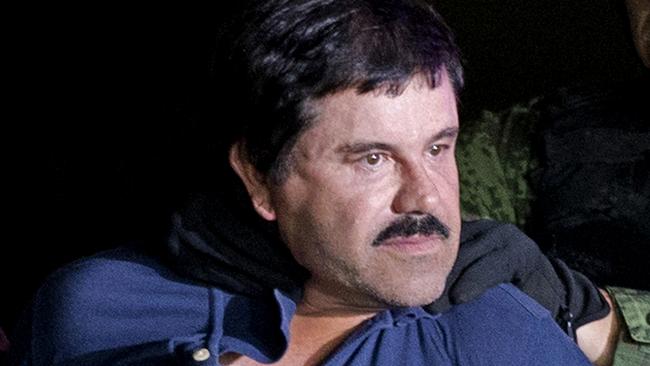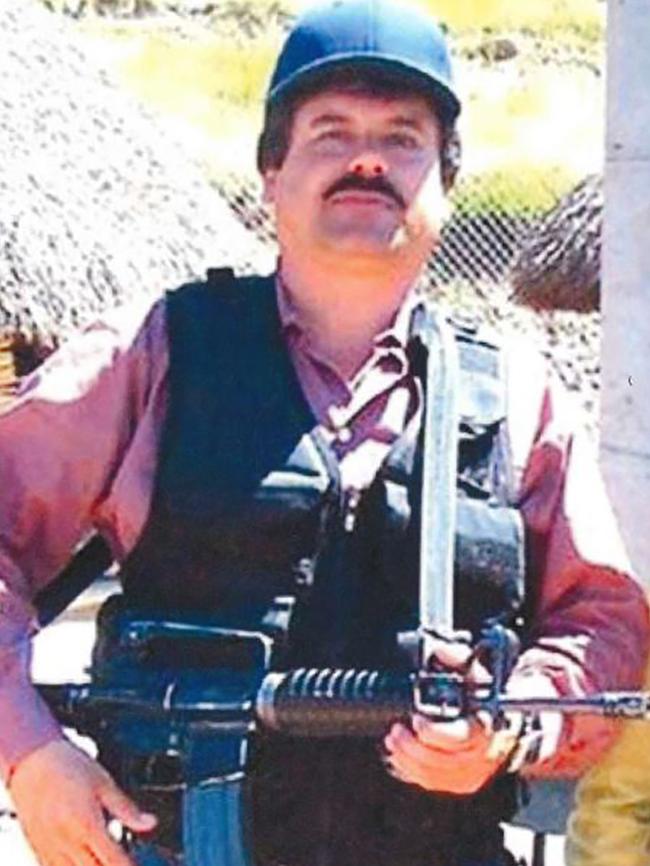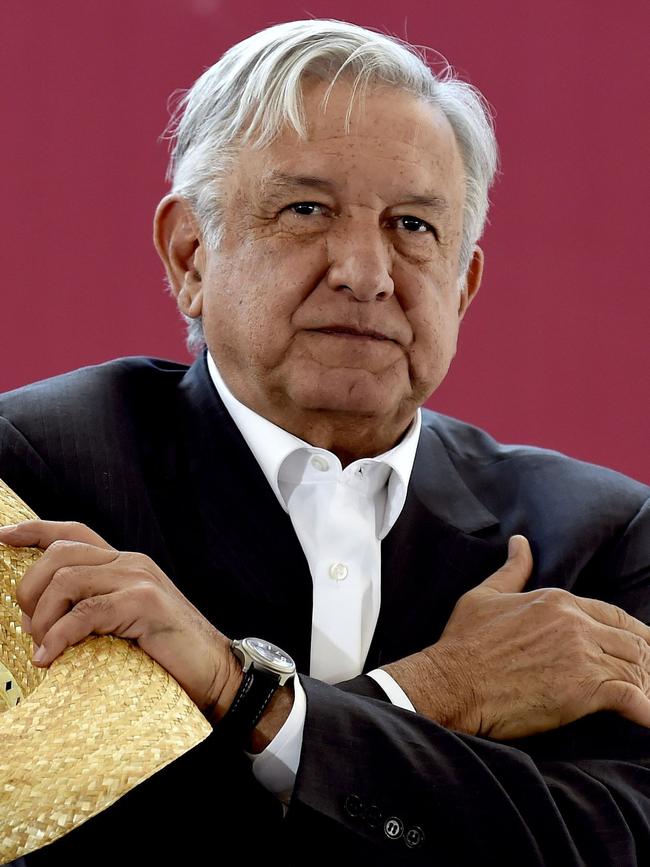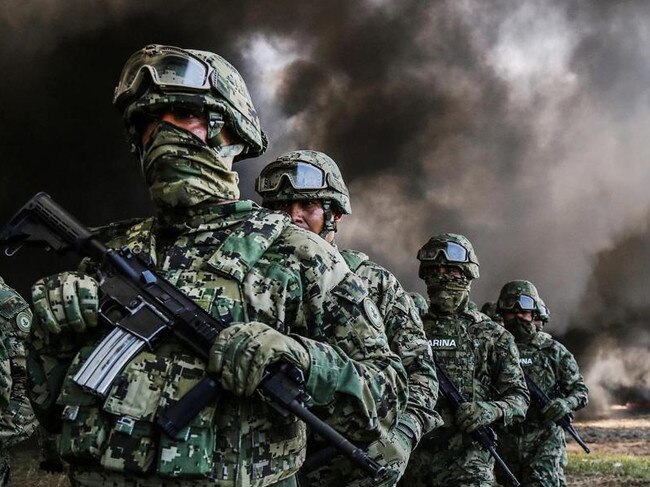Mexico declares drug war over as jury considers jailing of kingpin El Chapo
Two major moves on the other side of the world will undoubtedly have an effect on Australia’s market demand for illicit drugs. They involve drug kingpin El Chapo and Mexico’s war on drugs.
Crime in Focus
Don't miss out on the headlines from Crime in Focus. Followed categories will be added to My News.
Two things happening on the other side of the world will undoubtedly have an effect on Australia’s market demand for illicit drugs.
One is a jury in New York now considering whether to jail for life one of the biggest drug dealers in history, the man behind the majority of cocaine and other drugs dispatched to Australia over the past 10 years.
The other is Mexico’s declaration that its 12-year military war on drugs is officially over.
Individually, each decision is important but collectively they could have a profound impact on the drugs that come to our shores — an influx annually measured by the tonne, with busts and arrests in the hundreds.
Blue collar: The changing face of cocaine use in Australia
Trafficking network: Australia’s untouchable drug lord

‘ROBIN HOOD’
Joaquin ‘El Chapo’ Guzman, 61, is something of a hero in the northwestern corner of Mexico.
For the best part of 25 years he ran the Sinaloa cartel and pocketed an unbelievable $AU19 billion in profits, a chunk of which he distributed to his people in a Robin Hood-style gesture. And Robin Hood he was, in some ways, protecting the Sinaloa region, courtesy of his own heavily-armed army and large, well-placed bribes to government officials, from the crazy murder rates that have plagued his country.

Mexico has suffered more than 200,000 murders in the past 12 years and last year was its most violent on record with 33,341 homicides, many drug related.
But in Sinaloa rates have been down. Nobody would cross the cartel that runs the region and that has led to an uneasy Mexican standoff.
It has also led to Guzman’s cartel killings of rivals, notably members of splinter group Cartel Jalisco Nueva Generacion (Jalisco New Generation Cartel or CJNG), being carried out outside the region — where for the locals of Sinaloa it’s none of their business.
Thankfully for US prosecutors, no locals make up the 12-person jury which has begun deliberating three months of trial evidence on 17 charges of mass drugs trafficking, weapons possession, money laundering, kidnapping and murder.
BATTLE FOR CONTROL
Guzman’s arrest and extradition was a massive blow to drugs traffickers to Australia. He controlled at least 60 per cent of the national drugs trade here, shipping cocaine from Colombia, Peru and elsewhere in Central and South America.
CJNG and its leader, Ruben Nemesio Oseguera Cervantes, aka El Mencho, have stepped in to fill the vacuum and are now the Australian Federal Police’s priority offshore target.
As the leading Mexico drugs trafficker here, El Mencho has a network of contacts, particularly among expat Mexican families and Outlaw Motorcycle Gangs, to distribute his hauls.
Meanwhile, Ismael “El Mayo” Zambada has ably taken over Sinaloa, and if El Chapo were to be released the cartel could rise again and look to Australia and its lucrative drugs market to refill the cartel’s coffers.
But regardless of what happens in the US courtroom, Mexico is apparently easing back in the fight against whoever emerges as country’s leading drugs kingpin.
NEW APPROACH
Mexican President Andres Manuel Lopez Obrador has declared the country’s long war on drugs over, saying his government will no longer prioritise using the army to capture cartel bosses.

The Leftist president has instead proposed a series of social programs, which he says will end the poverty driving violent crime.
Mexico first deployed its army to fight the cartels in 2006, a move which saw the deaths or capture of leading drugs figures and hampered the drugs trade notably to the US, but also to Australia, yet fuelled the incredible murder rates.
When asked what his strategy was for the drugs war, Lopez Obrador said there was none.
“There’s no war. There is officially no more war. We want peace, and we are going to achieve peace,” he said.
“No capos have been arrested, because that is not our main purpose. The main purpose of the government is to guarantee public safety … what we want is security, to reduce the daily number of homicides.”

While that policy may be good domestically, and is supported by his proposal to create a national guard to keep the peace, it does not bode well for Australian law enforcement, which looks to Mexico for its muscle and intelligence to target Sinaloa, CJNG and other groups such as MS-13 looking to increase drugs market share here.
“Our collaboration with authorities there (Mexico) has produced results for us, who knows how this might change,” one AFP source said. “Either way Australia will still be a target for Mexican cartels, to what degree though we will presumably find out.”
Originally published as Mexico declares drug war over as jury considers jailing of kingpin El Chapo


